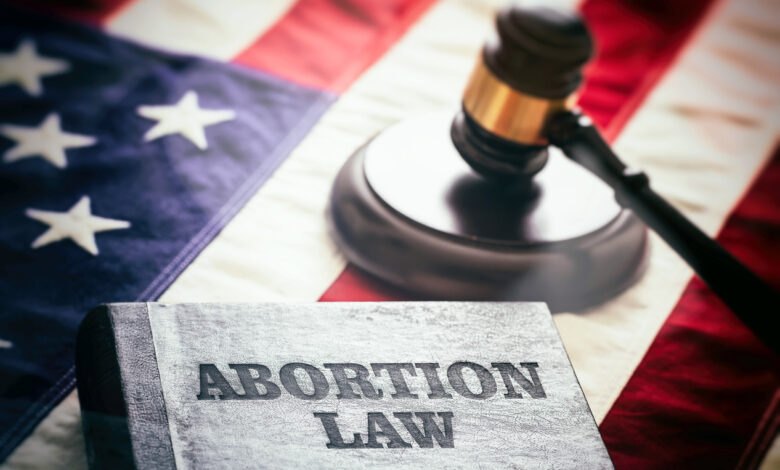Justice Alito’s Abortion Meltdown

Dealing with abortion issues seems to be driving Supreme Court Justice Samuel Alito crazy.
Justice Alito’s bizarrely off-point opinion in Dobbs v. Jackson Women’s Health Organization, the case that overruled Roe v. Wade, was suffused with intellectual dishonesty. Perhaps more than any Supreme Court decision in recent years, Alito’s opinion reinforced already existing doubts about the court’s legitimacy as a neutral, non-political arbiter.
Alito’s opinion in Dobbs barely even acknowledged the core ruling of Roe “that the right of personal privacy includes the abortion decision, but that this right is not unqualified, and must be considered against important state interests in regulation.” Alito never got around to balancing the true competing interests at stake: a woman’s interest in maintaining autonomy over her own body regarding childbearing and healthcare, on the one hand, and the state’s interest in preserving the life of an unborn child, on the other. Instead, he merely brushed it off, equating a woman’s right to personal autonomy with “illicit drug use, prostitution and the like.”
A judge who can’t tell the difference between a woman seeking to manage her own pregnancy and a prostitute/drug dealer is clearly pushing an agenda, and it isn’t protecting women’s rights. He shouldn’t be trusted with the task.
And yet, here he is again, telling us that if it were up to him, he’d let an activist anti-abortion judge and two Trump-appointed judges on the Fifth Circuit Court of Appeals impose a whole new (more on “new” later) set of nationwide restrictions on a “medication abortion” drug, mifepristone, that was approved by the FDA over 20 years ago and has been widely (and safely) used since then – all of this before the Fifth Circuiteven hears, much less decides, the appeal in the underlying case.
Justice Alito was one of two dissenters to the Supreme Court’s decision last week to stay the Fifth Circuit ruling creating restrictions on the distribution and use of mifepristone. The other dissenter was Justice Clarence Thomas. Justice Thomas, who has bigger fish to fry right now, at least had the good sense to just say no. He didn’t bother to explain why the restrictions on the use of mifepristone imposed by the Fifth Circuit should apply nationwide even before the court heard and decided the merits of the case.
Not so Justice Alito. His petty, personal and studiously off-point dissent suggests that he should have taken a cue from Justice Thomas and kept his mouth shut.
The history of this lawsuit is a bit complicated, but it boils down to a bunch of anti-abortion activists manufacturing an artificial lawsuit and filing it with a like-minded judge.
The lead plaintiff, the so-called “Alliance for Hippocratic Medicine (“AHM”), was incorporated just months before the suit was filed with its headquarters in Amarillo, Texas. Barely disguised behind a mission statement invoking “protecting the vulnerable at the beginning and end of life” is AHM’s true mission – and its single visible “accomplishment” – to manufacture and file a lawsuit seeking to revoke the FDA’s approval of the “medication abortion” drug mifepristone, and thus bar mifepristone from use in the United States.
AHM chose Amarillo as its headquarters and filed their lawsuit there because the only judge sitting in the Amarillo division of the federal court for the Northern District of Texas, Matthew J. Kacsmaryk, is a rigid religious conservative who, according to people who know him, comes to his judicial work “with a long history of activism rooted in his [anti-abortion] religious beliefs.”
In other words, AHM shopped for and found a judge who was virtually guaranteed to rule in its favor.
And so he did.
Earlier this month, Judge Kacsmaryk ruled that despite a more than twenty-year history of safe and effective use, the Food and Drug Administration had wrongly approved mifepristone in 2000. Kacsmaryk, who had deliberately concealed his deep, religious-based anti-abortion activism in his Senate confirmation hearing, issued an order that would have the effect of immediately outlawing the use of mifepristone on a nationwide basis.
Don’t ask me to describe his reasoning. It’s not worth the time or effort. If you’re curious, take a look at Ruth Marcus’s opinion piece in the Washington Post, “The Worst Federal Judge in America Now Has a Name.”
The FDA promptly appealed Judge Kacsmaryk’s ruling to the Fifth Circuit Court of Appeals, asking the court to stay Kacsmaryk’s nationwide ban of mifepristone pending a decision on the appeal. In a 2-1 decision by a three-judge panel, the Fifth Circuit granted the stay in part and denied it in part. It granted the FDA’s request to stay Kacsmaryk’s outright ban of mifepristone but denied the FDA’s request to stay significant restrictions on its use.
Both of the judges who voted to impose the restrictions were Trump appointees. The third judge, a George W. Bush appointee, would have stayed Judge Kacsmaryk’s ruling in its entirety pending a decision on the merits.
The restrictions imposed by the Fifth Circuit were, to say the least, substantial. They included shortening the time period during which mifepristone would be available to pregnant women, prohibiting retail pharmacies from dispensing the drug, prohibiting physicians from prescribing mifepristone via telemedicine, requiring in-person office visits to obtain a prescription, and requiring prescribers to report “non-fatal adverse events” related to mifepristone.
None of these restrictions were in place at the time of Judge Kacsmaryk’s ruling. While some of them had been included in the FDA’s initial approval of mifepristone in 2000, the FDA had eliminated them as part of a seven-year effort to widen access to the drug.
In other words, the restrictions left in place by the two Trump-appointed Fifth Circuit judges were indeed “new” – meaning that they had not been in effect for 7 years prior to Kacsmaryk’s ruling – even if they were not entirely lacking in historical precedent.
This was the state of play when the FDA asked the Supreme Court to stay the Fifth Circuit’s ruling – not just the ban of mifepristone, but also the restrictions imposed by the Fifth Circuit – pending a decision on the merits of the case.
The Supreme Court, in a 7-2 decision, granted the stay over the dissents of Justices Alito and Thomas.
To the dismay of anyone who thought that Alito had already taken his intellectual dishonesty on the issue of abortion to the limit in his Dobbs decision, Alito showed that he had plenty of it left over.
Rather than start his dissent with something, say, about the case before him, Alito launches with a “gotcha,” a petty personal attack on some of his fellow justices.
The first words of Alito’s dissent accuse fellow justices of hypocrisy, noting that some of them who voted to grant the stay in the mifepristone case had previously “lambasted” the court for granting stays in other cases. Alito asserts that he “did not agree with these criticisms at the time.”
Of course he didn’t.
Granting a stay in one of the cases Alito mentions, Merrill v. Milligan, permitted the state of Alabama to put into place a redistricting plan that the trial court found was a racially discriminatory violation of the Voting Rights Act. What could possibly be wrong with that? And granting a stay in a second case mentioned by Alito, Whole Woman’s Health v. Jackson, permitted the state of Texas to enforce a law allowing private-citizen vigilantes to enforce a ban on abortion as early as six weeks in pregnancy, before many women even know if they are pregnant. Who could oppose that? And in the third case Alito mentions, Barr v. East Bay Sanctuary Covenant, the court granted a stay that permitted the Trump Administration to implement – without the benefit of public notice or public input generally required by law – a rule that upended longstanding practices regarding refugees who seek shelter from prosecution. How could anyone not like that!
Alito’s disagreement with other justices who opposed stays in those cases, however, ended with his opposition to granting a stay that would have done nothing more than preserve the status quo with regard to mifepristone.
Who’s the hypocrite here, anyway? Alito’s about-face in the mifepristone case exposes a nakedly political, result-oriented approach, especially when one tries to unpack his nonsensical, off-point reasoning.
As if the last 7 years of relatively unrestricted mifepristone use had never happened, Alito claims that the restrictions imposed by the Fifth Circuit were not “new.” Rather, the restrictions “would simply restore” the circumstances that existed “from 2000 to 2016.” Sorry, but that’s an extreme departure from the current status quo, regardless of any “circumstances” that might have existed in the past.
Next, Alito claims that since the case is on a “fast track,” denying the stay is no big deal. By “fast track,” Alito means that oral argument is scheduled to take place in 26 days, and either the Court of Appeals or the Supreme Court will decide the case sometime after that, “in the near future.” Alito doesn’t enlighten us on how the “near future” converts to court time. Weeks? Months? Years?
Whatever, it’s too long for those women whose access to mifepristone will be restricted in the meantime.
But that’s no big deal either, according to Alito, because the “applicants” are not likely to suffer irreparable harm in the interim. By “applicants,” Alito means not the women whose access to mifepristone will be restricted, but the FDA and Danco Laboratories, the pharmaceutical company that distributes mifepristone.
In other words, whatever interest women may have in managing their own health care and pregnancies isn’t even worth mentioning, certainly not in a case that bears directly on their health care and pregnancies. Got it?
And even Alito’s claim that neither the FDA nor Danco would suffer any irreparable harm is nonsensical. It is a purely political screed based on Alito’s fear that the FDA would refuse to obey an unfavorable court order in the case.
But the height of political absurdity in Alito’s opinion is reserved for his conclusion that there really isn’t a conflict between the Fifth Circuit’s decision restricting the distribution of mifepristone and the decision of a federal judge in Washington State ordering the polar opposite, that the FDA make no changes to the availability. Huh? Aren’t the decisions in the two cases directly contradictory?
Not according to Justice Alito. To him, “it’s not clear that there actually is a conflict.” Why not? Because the FDA has not acted “equitably.” How so? The Washington district court enjoined the FDA from altering its current practice, “something that the FDA had never hinted it was contemplating.” And not only that, but the FDA could have appealed the order, but didn’t.
Say what?
The FDA didn’t initiate the Washington case, it was brought in as a defendant. After it was ordered not to do something – altering its current position on mifepristone – that that it had no intention of doing in the first place, why in the world would the FDA waste its time and money to appeal a decision with which it agreed? What is “inequitable” about that?
At the end of the day, Alito’s dissent in the mifepristone case should end any debate about whether he is using his position on the Supreme Court to advance a political agenda. He is. And the pettiness, the ugly personal tone, and the patently absurd, off-point nature of his writing on cases involving abortion suggests that Justice Alito has let not just his politics, but his emotions cloud his judgment.





This is a super helpful piece that succinctly describes all the technical twists and turns of this case and Justice Alito’s illogical response. When anyone in a position of unelected lifetime power (whose job it is to “call balls and strikes” according to the law) veers away from that responsibility and uses his power to push blatant religious doctrine, it’s time they were removed and replaced.
That’s why I refer to shadow docket as the Alito Docket. Wonder why he takes shadow docket criticism so personally? Maybe the ole subconscious is having trouble reconciling to reality.